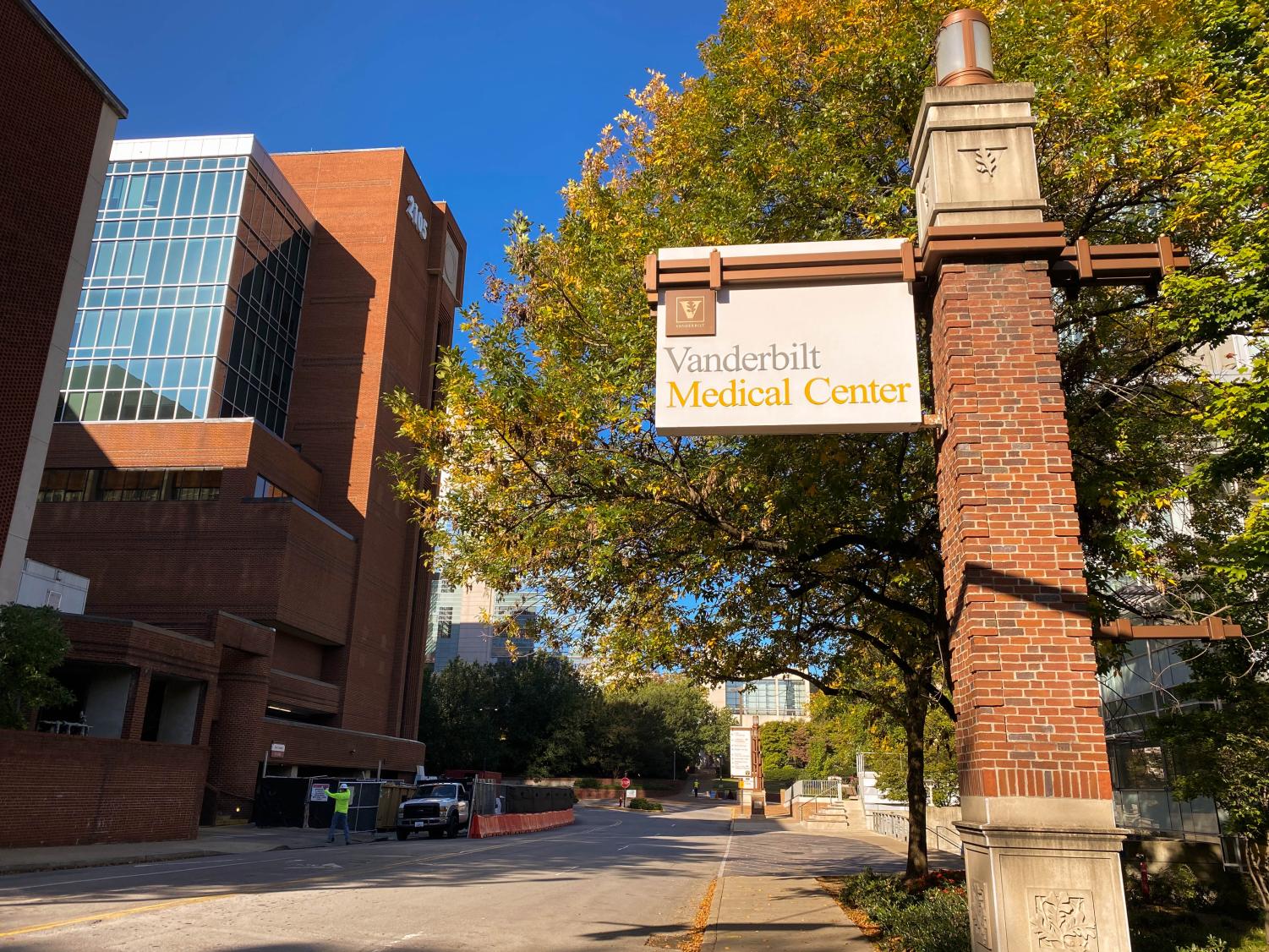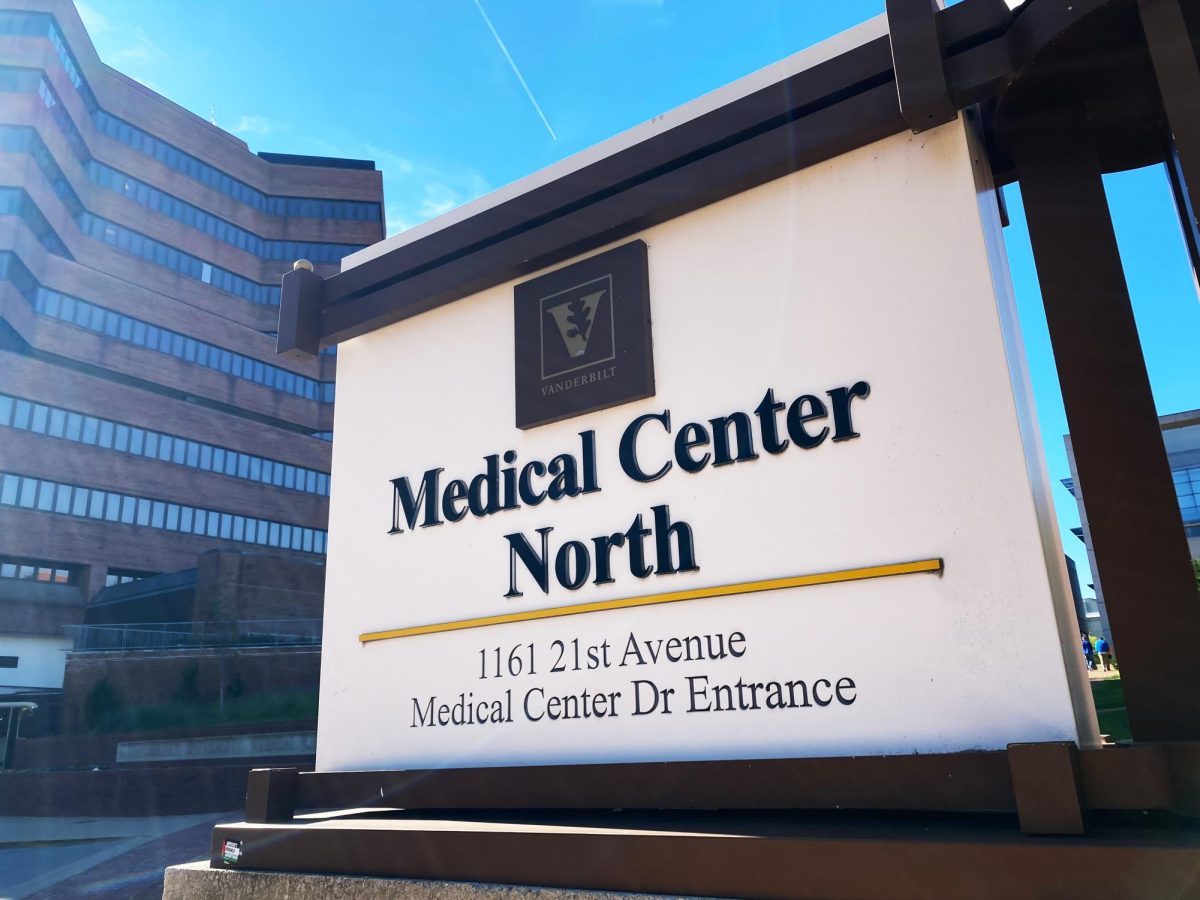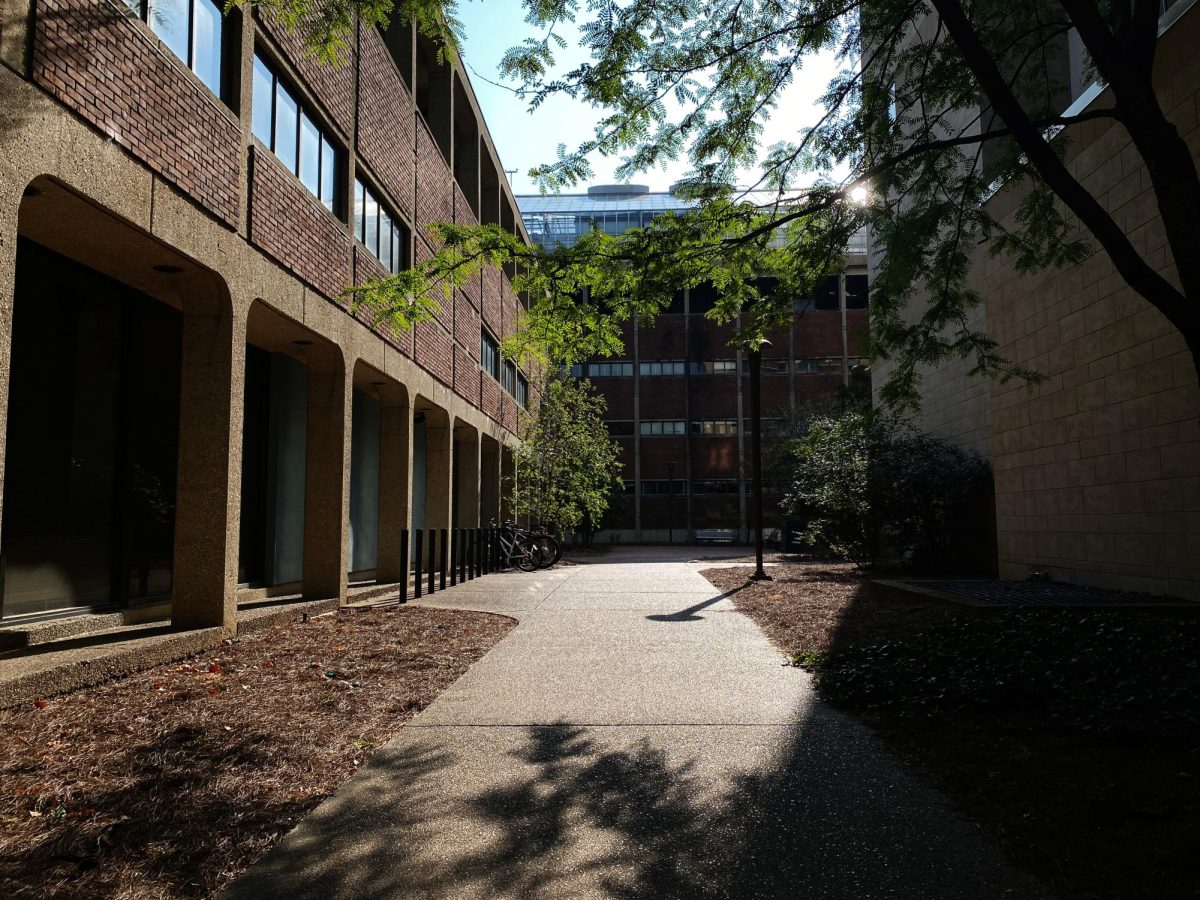Former Vanderbilt University Medical Center (VUMC) nurse RaDonda Vaught was found guilty on March 25 of criminally negligent homicide and gross neglect of an impaired adult in the 2017 death of 75-year-old Gallatin resident Charlene Murphey. The jury found Vaught not guilty of reckless homicide.
On Dec. 26, 2017, Vaught mistakenly injected Murphey with the paralyzing drug vecuronium instead of the anti-anxiety sedative Versed. Murphey died the next day. VUMC fired Vaught on Jan. 3, 2018, and the District Attorney’s office arrested Vaught for her alleged role in Murphey’s death on Feb. 4, 2019.
“Multiple health care professionals were on the jury. The jury found a series of decisions were made by Vaught to ignore her nursing training, and instead, failed to adhere to safety protocols that proved to be fatal,” a March 26 statement from the Davidson County District Attorney’s Office to WKRN reads. “The jury felt this level of care was so far below the proper standard of a reasonable and prudent nurse that the verdict was justified.”
Vaught’s sentencing hearing is scheduled for May 13, 2022. She faces three to six years in prison for gross neglect of an impaired adult and one to two years for criminally negligent homicide. Vaught told CBS News on March 29 that she has not yet considered whether she will appeal her sentence.
The case received nationwide attention due to questions over whether mistakes by medical professionals will be criminalized in the future. Medical mistakes are usually litigated in civil court or result in the revocation of a medical license. Vaught lost her nursing license in September 2019, after the Tennessee Board of Nursing reversed their initial decision to not pursue disciplinary action against Vaught and held a medical discipline hearing against her.
“I was very dismayed about the verdict finding her [Vaught] guilty. The nurse was guilty of making a horrendous error—she admitted it. But there were system errors involved as well,” Maureen Shawn Kennedy, editor-in-chief emerita of the American Journal of Nursing (AJN), said in an interview with The Hustler. “This was a nurse who, by all accounts, was there trying to do what she should have been doing and made an egregious error because she didn’t follow a procedure. Does that deserve time in jail? I don’t think so.”
VUMC declined to comment on the criminal proceedings. Vaught’s attorney Peter Strianse has not responded to The Hustler’s requests for comment.
“Ms. Murphey’s family is at the forefront of my thoughts every day,” Vaught said in a March 25 interview with AP News. “You don’t do something that impacts a family like this, that impacts a life, and not carry that burden with you.”
Timeline of events
As part of treatment at VUMC for a brain bleed, Murphey was taken to the radiology department to receive a PET scan on Dec. 26, 2017. Her condition had been reportedly improving before the scan, and she was prescribed Versed due to her claustrophobia. Vaught instead injected Murphey with vecuronium, and Murphey became brain-dead within 30 minutes of receiving the drug.
According to a Tennessee Bureau of Investigation (TBI) report, VUMC utilizes an electronic medication cabinet to dispense drugs. The report and Vaught state that she searched “VE” to try to withdraw Versed from the cabinet, unaware that the drug was listed under its generic name, midazolam. Vaught admitted in the report to being “distracted” while searching for the medication because she was training an orientee nurse.
When the search was unsuccessful, Vaught triggered an override to unlock a larger range of medications and searched “VE” again. Per the report, Vaught ignored or overrode five warnings stating that she was withdrawing a paralyzing medication. The report also lists five “red flags” that Vaught also failed to recognize, including that vecuronium is a powder while Versed is a liquid, and that the cap for the vecuronium bottle reads “Warning: Paralyzing Agent.”
After realizing that she had administered the wrong medication due to Murphey undergoing cardiac arrest, Vaught stated that she informed hospital staff immediately.
VUMC response
VUMC neurologists initially reported Murphey’s death to the Davidson County Medical Examiner on Dec. 27, 2017, with no mention of the medication error. VUMC instead attributed Murphy’s death to “natural causes” and complications related to her “intracerebral hemorrhage,” stating there was “no foul play suspected.”
The TBI report includes a letter from Marcee Lupica, associate nursing officer at the VUMC Neuroscience Patient Care Center, and Misty Ashby, VUMC neuro ICU manager, to Vaught from January 2018. The letter stated that the hospital had decided to fire her after an internal investigation and interview. According to The Tennessean, Vanderbilt also negotiated an out-of-court settlement with Murphey’s family, prohibiting them from speaking publicly about the death. As of print, Vaught’s LinkedIn states that she began working as a “throughput coordinator” at TriStar Centennial Medical Center in May 2018.
The Centers for Medicare and Medicaid Services (CMS) began an investigation into VUMC in November 2018 in response to an anonymous tip. The CMS published a public report about the error on Nov. 19, 2018, which included interviews with Vaught, though she was not named, and other VUMC personnel.
VUMC did not report the medication error to state or federal governmental officials, despite it being mandated by the Health Data Reporting Act of 2002, as outlined by the CMS report.
The report threatened to suspend Vanderbilt’s Medicare reimbursements, which constituted about 22% of their funding at the time. VUMC submitted a corrective action plan with now-implemented procedures, such as shrink-wrapping paralyzing medications and adding additional warnings in the electronic system, which CMS accepted.
The Davidson County District Attorney’s Office also began an investigation into the matter on Dec. 15, 2018, resulting in Vaught’s 2019 indictment. Vaught pled not guilty to all charges, which included reckless homicide and gross neglect of an impaired adult. Strianse stated that Vaught made a mistake that should not be categorized as a crime because Vaught had no intent to cause harm. Vaught waived her right to testify during the trial.
“I know the reason this patient is no longer here is because of me,” Vaught testified during the 2018 Tennessee Board of Nursing proceeding. “There won’t ever be a day that goes by that I don’t think about what I did.”
Strianse argued that “systemic problems,” such as with electronic medication cabinets at VUMC, were more to blame for Murphey’s death. He claimed that Vaught was a “scapegoat” in the situation.
“We are engaged in a pretty high-stakes game of musical chairs and blame-shifting and, when the music stopped abruptly, there was no chair for RaDonda Vaught,” Strainse said during his oral opening statement. “Vanderbilt University Medical Center? They found a seat.”
VUMC Pharmacy Medication Safety Officer Terry Bosen countered in the proceedings that any previous technical problems with medication cabinets at VUMC were resolved before the incident occurred.
“This wasn’t an accident or mistake as it’s been claimed,” Assistant District Attorney Chad Jackson said during the trial. “There were multiple chances for RaDonda Vaught to just pay attention.”
Responses to the case
While waiting for the verdict to be announced, Vaught stated that she does not regret being honest about her error to government officials and VUMC personnel.
“I’m not saying I’m not responsible for my actions, not at all. I’ve been very clear with everyone I’ve spoken with—the TN Department of Health, multiple investigators, Vanderbilt, TBI, everyone. I have not shied away from my responsibility, but health care is a system,” Vaught said in a March 25 interview with WTVF. “I don’t go to work in a vacuum. I work in a health care system.”
Nurses across the country have publicly disagreed with the verdict, stating that they believe this case will set a precedent for criminalizing medical errors, will disincentivize medical practitioners from honestly reporting their mistakes and will deter people from joining the nursing profession. As of print, a petition calling for clemency for Vaught has received 160,503 signatures.
“The criminalization of medical errors is unnerving, and this verdict sets into motion a dangerous precedent. There are more effective and just mechanisms to examine errors, establish system improvements and take corrective action,” a March 25 statement from the American Nurses Association (ANA) reads. “The non-intentional acts of individual nurses like RaDonda Vaught should not be criminalized to ensure patient safety.”
The Davidson County District Attorney’s office countered this argument, stating that Vaught’s case is not precedent-setting.
“I’m not an attorney, so I can’t say for sure what makes a precedent but it seems to me once you have one case, it’s easier to have another,” Kennedy said. “In terms of what this means professionally, I think it’s a really bad message to people who are trying to do the right thing. People are less likely to come forward and admit they’ve made a mistake because they worry about getting blamed or punished.”










Nursing in the family • Jun 9, 2022 at 10:15 pm CDT
Sure, she was negligent! She should never be a nurse again and should find a different way to make a living. She is , however , not a criminal!!!!! She is stupid in a system that is faulty. If you send someone like her to jail the nursing professionals will diminish over time due to risks of becoming a criminal if someone dies in their care.
B. Bendzka • Jun 3, 2022 at 12:17 pm CDT
I believe the verdict was appropriate. This is NOT about protecting nurses as it is about protecting the safety and well-being of the patients who have entrusted healthcare professionals with their lives. Maybe this is what the healthcare industry deserved for overloading, overworking while expecting the nurses to work in environments that are unsafe for the patients. Regardless, Ms. Vaught had a responsibility to adhere to the Scope of Nursing Practice Standards issued by the ANA. She violated at least 4 of them and 3 of the Code of Ethics for Nurses.
Karen Guymon, RN • May 18, 2022 at 9:53 pm CDT
Do they do barcode scanning on patient and drug at Vanderbilt. It was never stated if this was done. It would have indicated that the drug was not ordered for that patient!! And it never would have happened! This is a must have safetymeasure that should always be adhered to!!
Jessica • Oct 30, 2022 at 11:54 am CDT
they didn’t at the time in the radiology department, which is where this took place… that was part of the problem
Laura Baldwin • May 13, 2022 at 4:44 pm CDT
Hospitals tend to overload the nurses and then try to cover it up. And 12 hr shifts are too much for anyone to pull in the healthcare field!!! The hospitals and nursing homes do this to try to save money. They save a shift by doing 12 hr shifts. I worked for 32 years on nursing but after all that I regret it. Had I known what I was getting into I would have chosen a different field of work. There is back biting, too many hrs and too long hrs to work and not nearly enough pay for what we go through as a caregiver.
Jessica • Oct 30, 2022 at 11:55 am CDT
yep, and she was covering for someone else, and not in her usual department
Laura Baldwin • May 13, 2022 at 4:30 pm CDT
I was a nurse before I retired but I would not be a nurse today, especially after this episode with this nurse and the way she has been treated. And if I were a nurse today, I would quit. As all nurses should do now. Quit and find something better to do.
Bernadette • May 3, 2022 at 11:04 am CDT
I have been a nurse for 50 years and worked in many areas of nursing both In patient and outpatient. The US healthcare system is broken, and has only declined over the past 5 decades. 7,000-9.000 people die annually from medication errors. From the 1970’s forward, healthcare has been nothing but a business. “Patient deaths are the cost of doing business” The cost continues to rise and the quality continues to decline. The US healthcare system ranks 37th among OECD nations for cost quality and access, and yet Americans believe we have one of the best systems.
This Vanderbilt University Medical Center case shows the corruption and politicization of healthcare. And who is the scapegoat? ONE NURSE, RaDonda Vaught. Nurses are not going to take this anymore. VUMC is a political football, with DA Glenn Funk running for office with a tough on crime agenda but protecting VUMC since he has multiple conflicts of interest. Open your eyes people. Civil rights are eroding everywhere. RaDonda did what these patriarchal white males will never do. She admiitted her mistake, had her license revoked, fined for her behavior and VUMC goes off scott free. The system has not been held accountable because of corruption.
All Americans are going to suffer with this assault on nurses/
Nursing in the family • Jun 9, 2022 at 10:24 pm CDT
I agree !!!
Kristie Miller • May 1, 2022 at 3:28 pm CDT
As a Registered Nurse who has been practicing for 30 years, I am on the fence about this. We learn early in nursing school about the 5 Rights and 3 Checks before administration of medication. RaDonda Vaught had several warnings that the medication she was choosing was a paralyzing agent but my question is: did VUMC’s electronic medication delivery system ask for a 2nd nurse to enter their information in order to dispense narcotic medication? Most facilities I’ve worked for need a 2nd nurse who works for the facility to input their information to dispense narcotics from the electronic medication delivery system. I’m on the fence as to whether criminal charges were or were not justified in this case but I don’t want it to set a precedent to open the door for all medication errors to be criminalized, no matter how small the error. There were several warnings that she was going to pull a paralyzing agent but did she ever say what she was thinking when those warnings popped up? She had a trainee nurse but was there something else? Was she overwhelmed with a high patient load? Nurses have been fighting for safe patient loads and states are answering that by ordering nurse to patient ratios that are safer. It said in this article she input VE but did she know the generic name for Versed or was she so rushed to get this medication that she couldn’t remember it at that moment? I’ve run into electronic medication delivery systems that use a generic name for one medication but the brand name for another but IMO these systems should have both the brand and generic name for each and every medication it dispenses because there are nurses out there who don’t know the generic names for medications and may not have the time to look but until these electronic medication delivery systems are perfected nurses need to check either a PDR or Nurses Drug Handbook if they’re not sure. I would rather take an extra minute to check and verify than find myself in handcuffs because someone died because I didn’t check and verify the medication is the correct medication.
Jessica • Oct 30, 2022 at 12:00 pm CDT
the bar code system wasn’t in place in the radiology department
why they had verconium stocked in radiology– that’s the pharmacists fault
why they did not a pharmacist check a paralytic agent– also, pharmacist’s fault
why they decided to roll out the training to the entire hospital at the same time, and why nurses were told to override the system— hospital’s fault
why is vercuronium, a paralytic, not a controlled medication? DEA’s fault
Why is the prescriber writing an order for the brand name, and not generic (midazolam)–prescriber’s fault
Why is the medication not listed under the pyxis under both generic and brand names– fault of whoever designed the pyxis
Sharon • Apr 7, 2022 at 9:17 am CDT
Radonda lost her license and will have to live with this the rest of her life…..is that not punishment enough???She can’t do this to anybody else again.
Adrienne Bennett • Apr 6, 2022 at 9:07 am CDT
am a retired RN. I worked for 43 years in 7 states, SICU, smaller ICU’s, Dialysis, 2 Indian reservations, etc..I am so disheartened at the outcry around the country in support of Ms. Vaught. Every entity, every nurse, everyone who screams out support for her and places blame on the system, hospital, etc., are overlooking the most important issue, which is NOT reading the label! Nursing 101, right medication!! Ms. Vaught herself set in motion the chain of events that transpired the minute she chose to be careless and not do that single most important step! Period! Nurses complain that they are overworked and understaffed. Well, guess what, it has always been that way. There is a lack of professionalism, pride, and accountability today. The moment a nurse clocks in, she is responsible for the lives of each patient, to ensure she does no harm. It’s an enormous responsibility. And all nurses know we aren’t in this profession because of money. The outcry around the country has me wondering if the 5 “R’s” are even taught anymore. Nurses are saying they are fearful to report mistakes now. Well, I am fearful for my loved ones to go to a hospital now because they may not get the correct medication and nobody seems to care. Think about what the REAL lesson here is!
Dsherrell • Apr 19, 2022 at 2:36 pm CDT
You ought to be ashamed of yourself. You obviously are stone hearted. The mere callousness of your remarks are enough to make one sick.
Laura Baldwin • May 13, 2022 at 4:37 pm CDT
I agree with you. I think all nurses should just quit. Find something less stressful. Nurses are overworked and under paid!!!
Rachel • Apr 21, 2022 at 10:47 pm CDT
I agree with you, the nurse was negligent. The hospital too, was also negligent by trying to cover the incident up. They reported to the medical examiner that patient died of natural causes. They also did not report the med error to state or federal officials as required my a health mandate.
candace • May 13, 2022 at 8:37 pm CDT
So mean to tell me, you’ve NEVER made a mistake in 43 YEARS of Nursing? Of course you have, you may not have killed a patient but a mistake is a mistake, hers was just on another level. A mistake and a crime are to different things. Js.
I have a disease that has me in and out of the hospital constantly! i’ve witnessed as a patient all the responsibilities Nurses have, on top of being overworked and short staffed, especially now. I’ve literally had Nurses come in my room, shut my door, just to sit and take a quick break and get off their feet. I feel for Nurses, they do way more than doctors!
Mari • May 14, 2022 at 5:55 pm CDT
If a nurse feels overburdened in her current job situation , there are other nursing jobs out there that are away from the clinical setting.
This was not a case of an overburdened nurse. This was a case of an irresponsible ICU nurse. Notwithstanding the egregious medication error, she left a critical care patient unattended and not monitored which is against ICU standards.
Ret. Dir. Ethics Consult Service Lg Univ MC • Apr 1, 2022 at 5:37 pm CDT
Isn’t in curious that the tip to CMS was anonymous? What were the technical issues with the medication carts that were reportedly resolved before this incident? Were their other medication errors related to the carts? How did pharmacy staff become aware of the technical problems? Were these technical issues related to other’s actions; for example, pharmacy staff, engineers, manufactures? What counts as reasonable doubt? VUMC neurologists’ testimony certainly suggests reasonable doubt to me. I find this case morally tragic and emblematic of the gross differences in power between institutions and the people who work for them. The biggest ethical challenges in the 21st century may be between institutions and the individual moral agents who work for them. As a society, we need to examine this very closely and to find solutions not based solely on power.
pamela bridges, rn • Apr 4, 2022 at 12:10 am CDT
absolutely. VUMC covered up mistakes from day 1. when radonda wanted to scan the vecuronium so her mistake was documented, her direct manager told her NOT to scan. the 2 doctors lied and withheld the medication error in their charting. the medical examiner covered up cause of death. VUMC leadership did NOT report this event which was mandated.VUMC paid off the 2 sons of deceased patient and NDA was signed to keep them happy and quiet. how much money was given to family while nurse was thrown under the bus? the state board did not revoke her license after the first review a few weeks after the incident, but….. then a year later after the ” anonymous ” tip the DA steps in, state decides to take away her license? and when did VUMC make necessary actions to keep their funding? rn to accompany pts to radiology. med cars and scanners in the radiology dept? no ability to override vecuronium? I mean this is ludicrous and I hope it all gets exposed. is glenn funk involved at all in VU? in my opinion the VUMC leadership should be put in stand to explain their way out of this mess. family should have TOTALLY sued hospital for damages of system errors and leadership should have followed just culture algorithms.
despicable.
Kristie Miller • May 1, 2022 at 3:39 pm CDT
I knew there had to be more to this and that VUMC played a much bigger role in this than I originally thought. I wasn’t sure if they made RaDonda Vaught the scapegoat in this whole thing and from your comments they did.
Mari • May 14, 2022 at 5:57 pm CDT
Regardless, only one person gave the drug and that was RaDonda.
Jessica • Oct 30, 2022 at 12:03 pm CDT
Amen
Healthcare Employee • Apr 1, 2022 at 12:22 pm CDT
Granted the mistake did cost a life, but all in all it was a mistake. I understand losing her job, because she did neglect to pay attention, but her license and spending time in jail, I disagree.
MSN 33 years ED/ICU/admin • Apr 1, 2022 at 3:55 pm CDT
I agree, that it was an error of neglect. BUT she does not belong in jail. The lesson should be moving forward to triple check and take a pause as that only takes less than 2 minutes.
Dalmane • Apr 4, 2022 at 8:48 pm CDT
Think of it like this. I’m driving my car on a road while distracted by my phone. I’m following all the local laws concerning hands-free device use, but a notification causes me to look at the screen instead of the road.
During this time I hit a pedestrian crossing the street in a crosswalk. I kill them even though I had no intent to do so. I can be convicted of involuntary manslaughter at the very least because I was acting with disregard for safety.
This nurse acted with a disregard for safety by overriding multiple warnings and most of all, NOT READING THE LABEL. Part of nursing training is the 5 R’s. One of which is Right drug. Any other behavior is not safe. That’s the reasoning behind the verdict.
Sharon • Apr 7, 2022 at 9:20 am CDT
However, as a driver you can still get your drivers license back….Radonda will NEVER be able to get her nursing license back….that’s the difference. I feel that is punishment enough for her.
Mr Smith • Apr 25, 2022 at 4:10 am CDT
Wow . What a Phantastical made of Analogy from Phantasy Land . Stay out of COMBAT
Rachel • Apr 22, 2022 at 7:58 am CDT
I think there’s a difference between a mistake and a crime. A mistake is when a Nurse ignores 4 warnings that describe a med as “paralyzing” and just before she administers it, realizes she has the wrong med and corrects her mistake by returning to med box and getting the correct pill, no harm done.
In my opinion, it is a crime when a homicide occurs due to gross neglect. No different than texting or drinking while driving, and you’re unaware of pedestrians or other drivers and you strike them, causing their death.
Medication Rule of Thumb: CHECK, CHECK, and CHECK again.
I couldn’t be in the medical field. It’s a fast pace and errors occur. I feel sorry for the Nurse because her hospital contributed to this gross error of neglect. Hospital and Nurse should be held accountable for this death. Her direct supervisor, manager, and all involved should be placed on probation until they can be replaced. Better yet, maybe the hospital should be shut down and all patients transported to a capable hospital.
pamela bridges, rn • Mar 31, 2022 at 3:52 pm CDT
a few clarifications re: DA statement of “several medical ” folks on jury.
there were not ” several” there were TWO jurors with “medical” experience. neither were RN’s.
one juror was an LPN who had never worked in acute care setting. most importantly the difference in practice and training and education from LPN and RN= LPN cannot receive, reconstitute , prepare or administer IV medications. of course this case was about searching and getting and giving an IV drug.
second “medical” juror was a retired RT(respiratory therapist) , again, RT does administer inhalant rx but does not handle narcotics, sedatives, nor would ever give an IV drug, nor would RT access drugs through the accudose other than albuterol.
any nurse , spouse or family member of spouse were NOT on the jury.
if a current working acute care nurse was on the jury I think we would have a much different result.
Lynn • Apr 21, 2022 at 12:26 am CDT
Your premise is based on an assumption. The regulations regarding the scope of LPNs and IV meds have changed several times over the last 20 years. You stated “most importantly the difference in practice and training and education from LPN and RN= LPN cannot receive, reconstitute , prepare or administer IV medications. of course this case was about searching and getting and giving an IV drug.” As of 2017, LPNs were still very much allowed to prepare AND administer IV drugs in that state. They had to have 3 yrs of experience and an IV course taught by the hospital to administer IV push meds, however, if they had both of those qualifications, they certainly could administer those meds as well.
Furthermore, I find your arrogance about being a nurse, and needing to be a nurse in order to understand the situation fully, not only faulty, but annoying, self-centric and offensive.
The retired RT has seen more in his/her days of acute care than you, at this obvious point in your career, could even conceive. Changes in protocols that would blow your head apart. When I walked into my first job in a hospital, 3-11 ward clerks (then called unit clerks, now HUCs) answered the 911 phone, dispatched ambulances, transcribed providers scribbled mess they insisted were orders to the Card-X (now the MAR), completed and sent all lab/imaging requisitions, and received and transcribed verbal orders from the providers as they walked by the nurses desk, in addition to all of the clerical duties they are still responsible for, and all without a single initial after our name. The rules and regulations that governed us were different than those in place today. LPNs were the majority of the floor nurses on med-surf floors. Charge nurses and admin nurses were RNs. Now, most of the floor nurses in my state are BSNs. However, in saying that, all states are different. Some states still have LPNs working the floor on med-surf units, and I can assure you, they definitely prepare AND ADMINISTER IV meds.
I have 31 years of experience in the medical field and can tell you, from personal experience, I do not need an RN to understand what happened here. She was tired. She was overworked, was taking care of too many patients, as well as training a newbie. She was talking, carrying on a conversation. She was used to an Omnicell that was frequently difficult to maneuver and had to be frequently overridden. It had become commonplace… an everyday situation. Therefore, she paid no attention to all of the times that protocols designed to stop this from happening, tried to stop it. She could have, by stopping and looking for 15 seconds, saved a life, but she didn’t. She has relived those 5 minutes of her life a million times, wishing with every fiber of her being that she could get a redo, but she can’t. Jails, unfortunately, are full of folks who would love to be able to go back in time and redo a 5 minute time frame, but they can’t.
Negligent homicide IS what she is guilty of: there was no intention to harm. She was going through the motions of her daily job without stopping to engage her brain. We’ve all done it. The problem is, as a medical professional, there are times that you MUST be fully engaged in what you are doing. Right before you administer meds, you should ALWAYS do a gut check. Are you sure this is the right patient? Are you certain it’s the right med? This is NOT the time that you can be distracted by anything. It’s the purpose behind timeouts before, during and after surgeries. It’s the STOP!!!! Breathe!!!! Concentrate!!! Are you sure???? We have ALL been taught these procedures over and over, nurse or not!!!! Look, I get it. She’s human. We all have bad days. Things go wrong. The problem is, in this profession, when you refuse to do that gut check every time, and you let the distractions get to you, people’s lives are at risk. Every time you go to that Omnicell, you are handling a potential deadly weapon. Since you were so big on the training RNs receive, you know that you were trained on the importance of attention during med admin, repeatedly. You were tested on it during your boards. You were required to watch about 15 e-learnings every year. You have been taught. So was she. She disregarded her training. She disregarded the multiple warnings screaming at her to pay attention. That’s negligent. Not only that, but tragically, someone paid for that with their life.
Should she be in jail? Maybe not. But if she shouldn’t be in jail, neither should the distracted driver that missed the stop sign and killed someone. Yeah, they can eventually get their drivers license back, but they are still a felon, so if they were a professional, they, too, more than likely, lost their career. They can’t get bonded, so no working for a bank, and they can’t be a teacher or a school bus driver. They can’t work at a federal prison or in law enforcement. They can’t get a gaming license, so no working at a casino. Their life is forever altered too, not just hers, but I don’t see a huge outcry when they go to jail, just when a nurse “makes a mistake”.
I can say, the executive leadership at Vanderbilt should definitely be sitting in jail. She did not make a decision to deceive, hide or harm anyone. They did. And their motivation was one of the oldest in the book: greed.
E Nash • Apr 23, 2022 at 7:13 am CDT
RN of 30 years, and I appreciate your thoughtful comment. Any young nurse reading this, PLEASE PAY ATTENTION. Develop these good basics early on. Even now after decades of nursing, it is second nature to mentally go through 5 R’s: right patient, right med, right route, right dose, right time.
Also you look at the label before you draw up, before you give, and after you give. I literally could not give an IV push med without doing this. It’s just a habit, one that has gotten stronger over the years, not more lax. I feel for this nurse, but honestly, somewhere along the way, she did not develop the skills necessary for administering medication properly. I agree with taking her license, but she should not be in jail.
Laura Baldwin • May 13, 2022 at 5:02 pm CDT
My advice is quit, quit while you can. Hospitals are big business, where a bandaid costs 30 dollars. Never mind that the nurse is underpaid and over worked. They don’t care, Quit while you can!!!!!
Nursing in the family • Jun 9, 2022 at 10:27 pm CDT
After this episode I’d definitely think about never encouraging my children to go into the nursing field !!!!